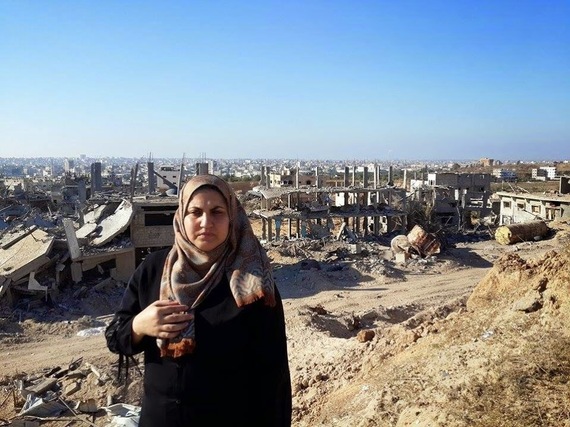Haifa Abu Amro, CARE staffer in Gaza, 30 years old, talks about how she has lived through the violence in Gaza and what she sees on the ground:
"Unfortunately, we were still in our house when the building next to us was hit by a missile in the first days of the war. Windows were blown out, everything fell down around us, children were screaming, but luckily nobody was injured. When we got out on the street, it was full of broken glass and pieces of concrete on the ground. The air was full of dust, the sky was dark red. All we could see was people running everywhere. The smell was very bad from the fires. There were no more sounds from people, no one was screaming, just running -- most were just in their sleeping wear. All we could hear was the noise of buildings falling down. I thought it was the end.
We ran as fast as we could to some relatives' house, which we thought would be safer. In the morning we left for my parents' house, but after three days that area was hit as well. Now we are 16 people living at the CARE office. We have heard from our neighbors that the night we left was the calmest night of the war, the next nights had been even worse. We volunteered to distribute hygiene kits and canned food that were provided by an aid organization in the neighborhood.
Everybody is working together now to provide aid as quickly as possible. In one house we went into, there were 50 to 60 people in each room. They had no food, nothing to sit or sleep on. I think that in most houses now, there are on average up to 30 families, each with five to six members, huddled together. People are breaking into office buildings to find a place to sleep. They are women and children, so they cannot sleep in the street. Most of these people, when they return home, they will find nothing. Their houses have been destroyed. People get news from the radio and SMS. We charge our mobile phones with car batteries. Word spreads quickly of developments. We know that there is a ceasefire now for three days, but people are not optimistic. This disaster will not be over, even if the war ends."
